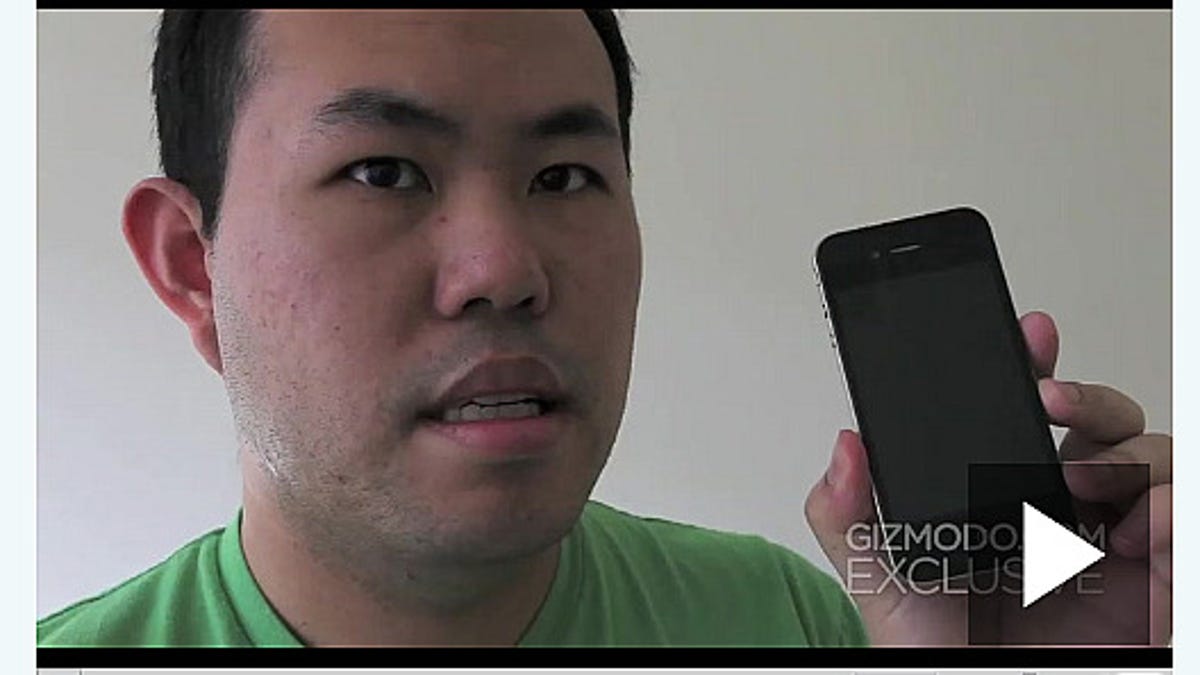Police seize Gizmodo's computers in iPhone probe
San Mateo County Sheriff's deputies served a search warrant on Jason Chen's home last week, according to a published report.

Editor's note: Click here for a more current story on the lost iPhone prototype investigation.
Police have seized computers and servers belonging to an editor of Gizmodo in an investigation that appears to stem from the gadget blog's purchase of a lost Apple iPhone prototype.
Deputies from the San Mateo County Sheriff's office obtained a warrant on Friday and searched Jason Chen's Fremont, Calif., home later that evening, Gizmodo acknowledged on Monday.
In an article on Friday, CNET was the first to report on the criminal investigation into the circumstances surrounding the iPhone prototype and Gizmodo's acquisition of it, including that Apple had contacted local police. A San Mateo County judge signed the search warrant, which said a felony crime was being investigated, a few hours later.
"When I got home, I noticed the garage door was half-open," according to an account by Chen. "And when I tried to open it, officers came out and said they had a warrant to search my house and any vehicles on the property 'in my control.' They then made me place my hands behind my head and searched me to make sure I had no weapons or sharp objects on me."
Lucy Dalglish, executive director of the Reporters Committee for Freedom of the Press told CNET on Monday: "This is such an incredibly clear violation of state and federal law it takes my breath away. The only thing left for the authorities to do is return everything immediately and issue one of hell of an apology."
Dalglish said that the San Mateo County search warrant violated the federal Privacy Protection Act, which broadly immunizes news organizations from searches--unless, in some cases, the journalists themselves committed the crime. The 1980 federal law requires police to use subpoenas to obtain information instead of search warrants, she said.
Editors at Gizmodo, part of Gawker Media's blog network, last week said they paid $5,000 for what they believed to be a prototype of a future iPhone 4G. The story said the phone was accidentally left at a bar in Redwood City, Calif., last month by an Apple software engineer and found by someone who contacted Gizmodo, which had previously indicated that it was willing to pay significant sums for unreleased Apple products.
CNET has not been able to confirm whether the investigation is targeting Gizmodo, the source who reportedly found the iPhone in a bar, or both. Apple has acknowledged that the lost device is its property. Calls to law enforcement sources on Monday were not immediately returned.
Gizmodo said on Monday:
Last Friday night, California's Rapid Enforcement Allied Computer Team entered editor Jason Chen's home without him present, seizing four computers and two servers. They did so using a warrant by Judge of Superior Court of San Mateo. According to Gaby Darbyshire, COO of Gawker Media LLC, the search warrant to remove these computers was invalid under section 1524(g) of the California Penal Code.
Darbyshire was referring to the portion of California law that prevents judges from signing warrants that target writers for newspapers, magazines, or "other periodical publications."
In 2006, a California appeals court ruled that the definition of "periodical publication" protects Web logs. "We can think of no reason to doubt that the operator of a public Web site is a 'publisher' for purposes of this language...News-oriented Web sites... are surely 'like' a newspaper or magazine for these purposes," the court concluded.
The federal newsroom search law known as the Privacy Protection Act is broader. It says that even journalists suspected of committing a crime are immune from searches--if, that is, the crime they're suspected of committing relates to the "receipt" or "possession" of illegal materials. (Two exceptions to this are national security and child pornography.)
The police hauled away three Apple laptops, a Samsung digital camera, a Seagate 500 GB external hard drive, USB flash drives, a HP MediaSmart server, a 32GB Apple iPad, an 16GB iPhone, and an IBM ThinkPad, according to documents that Gizmodo posted.
The tale of a lost iPhone may sound trivial, but Apple goes to great lengths to protect the secrecy of its products, and the company has not been afraid to take aggressive legal measures in the past. It filed a lawsuit against a Mac enthusiast Web site, for example, to unearth information about a leak. A state appeals court ruled in favor of the Web site.
Apple argued in that case that information published about unreleased products causes it significant harm. "If these trade secrets are revealed, competitors can anticipate and counter Apple's business strategy, and Apple loses control over the timing and publicity for its product launches," Apple wrote in a brief.
Under a California law dating back to 1872, any person who finds lost property and knows who the owner is likely to be but "appropriates such property to his own use" is guilty of theft. If the value of the property exceeds $400, more serious charges of grand theft can be filed. In addition, a second state law says any person who knowingly receives property that has been obtained illegally can be imprisoned for up to one year.
Last updated at 3:45 p.m. PDT: To include comment from Reporters Committee for Freedom of the Press and background on California newsroom search law and the federal newsroom search law.
Greg Sandoval, who writes about digital media for CNET, can be reached at Greg.Sandoval@cbs.com. Declan McCullagh writes about the intersection between law and technology for CNET and can be reached at Declan.McCullagh@cbs.com.



